Local News
Lehi Free Press talks solving Washington’s problems with Kennedy
Published
7 years agoon
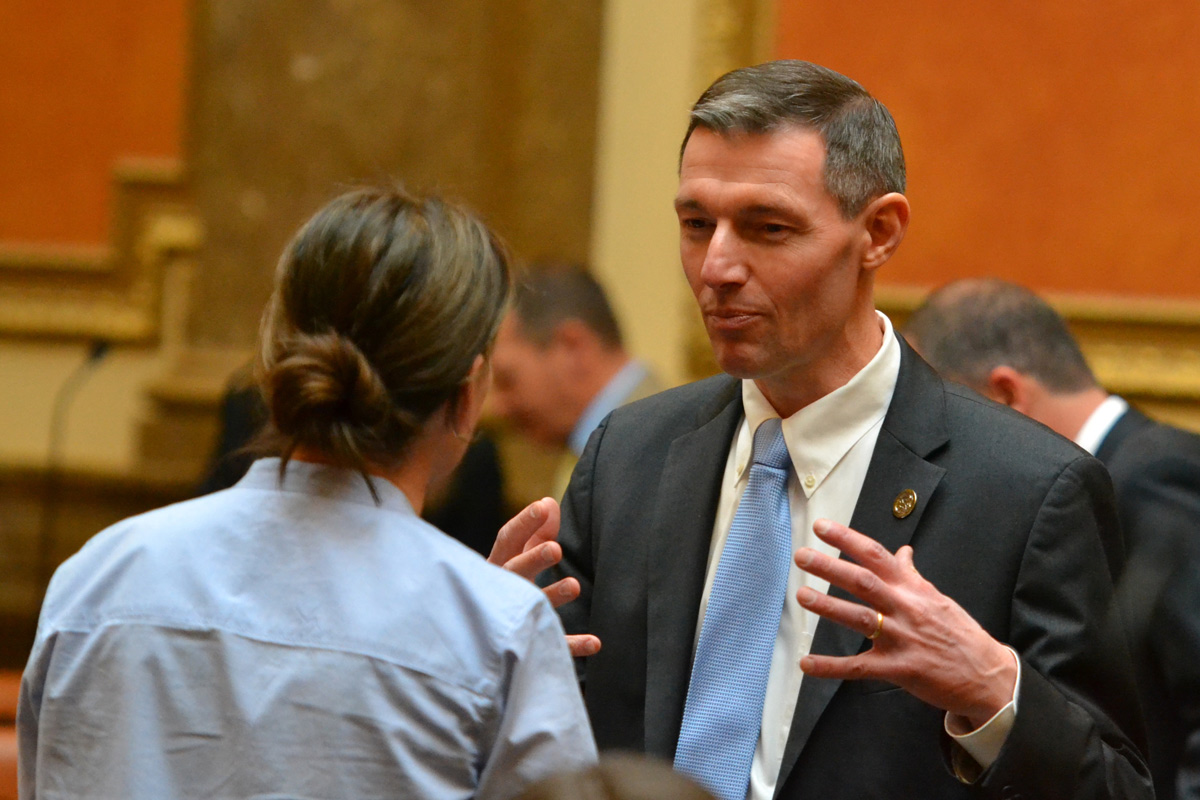
The following is an interview with Dr. Mike Kennedy, candidate for the U.S. Senate, Sally F. Francom, Publisher of the Lehi Free Press, and Autumn Foster Cook, Lehi Free Press political reporter.
Dr. Mike Kennedy is currently a physician/partner in a family practice located in Lindon. He is also an attorney. He has served as a legislator in the Utah House of Representatives since January 2013. Tomorrow is the last day to vote in the Primary election in Lehi.
Lehi Free Press: Mike, thank you for the opportunity to visit with you.
Dr. Mike Kennedy: Yes, thanks for having me. Happy to do it.
LFP: We have questions that are local in nature and some that are more federal in nature. In your ads, you talk about cutting the nonsense in Washington. There has certainly been a lot of that over the last decade or more. What new ideas do you have that other members of Congress up until now have not tried? How do you see yourself cutting through the nonsense in ways that are different and unusual?
Kennedy: It’s a good question. First, I know health care well, and I see a lot of nonsense there. I can give you specific examples if you want to get into details. But the reality is within these programs (sadly I know it’s not just Medicare but also defense and Social Security) there are issues. I don’t know those systems as well. But I’ve been on the campaign trail and asked voters, “is there any waste in defense?” The military guys say “yes, a lot.” There is waste in each of these areas, things that are duplicative or unnecessary, and I’m invested in making sure we change those things.
When it comes to health care, we have seen significant drug cost increases since Obamacare. I don’t know what in that bill made drug costs go up, but I remember something called the “$4 Walmart list.” It was a list of a bunch of good medicines you could get for $4 a month. It disappeared after 2010. Those same medicines have now gone up significantly. For instance, $4 a month for Albuterol was the price, and it’s now $40 a month. That may not sound like all that much, but that’s a significant price increase for your average person. And I’ve seen that for insulin and other medicines that used to be really cheap.
Getting the government out of the way is fundamental. When it comes to government picking winners and losers, sadly, usually the taxpayers are the losers. They pay more as a result. So, in healthcare I think there are some good steps we could make, and as a doctor I’d be capable of helping guide those processes.
The second thing is, working in the Utah State Legislature, we have a really good system. Yes, we’re not perfect, and we certainly have problems in Utah, but Utah is performing. It’s the number one economy in the nation, and a big reason is because we understand that people can innovate, and they can accomplish what they intend to if we reduce government’s burden on them, keep taxes low, and keep regulatory burdens low. Because of my work in the Utah State Legislature, I’ve grown to deeply appreciate what we do in Utah.
LFP: You talked about health care specifically, but, obviously Washington is broken in ways that aren’t just related to health care. What are other ways you could help eliminate the brokenness of Washington?
Kennedy: Basically, you have politicians on either side in this symbolic red and blue tug-o-war. There are good ideas on both sides of the aisle. I’m somebody who’s willing to listen and work with people with different opinions and build coalitions and consensus. Let’s stop looking for our political agenda and let’s start working for the American people.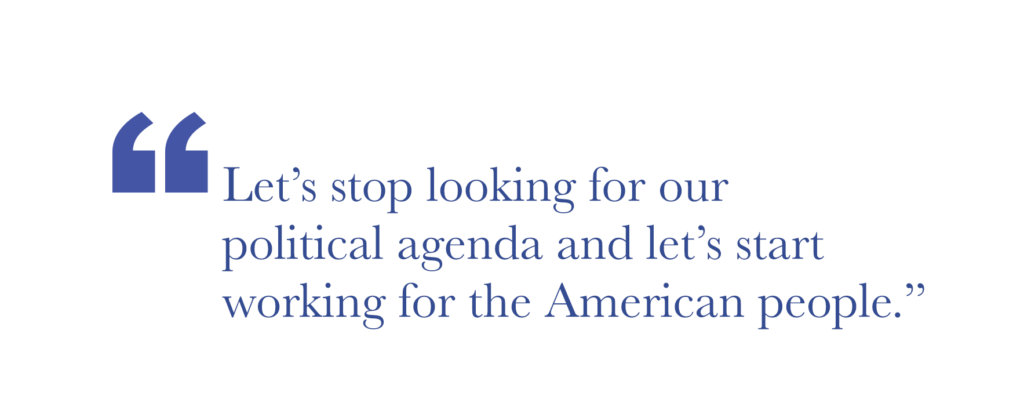
I’m not in this race for me. I’m not pursuing this seat for my own grandeur. It’s certainly not a pay raise. I love Utah and love living in Utah. I’m not trying to move to another place in the country because I love where I live. I’m doing this because I want to work for the people in Utah and make sure they’re well represented. In doing so, sometimes it takes us talking to people from different political viewpoints and trying to understand common ground. Once we understand the common ground, we can try to move forward on issues. It’s just a matter of being willing to listen and work with other people and maintain my principles. I’m a principled guy, a conservative fellow.
In the Utah State Legislature, we work with the Democrats routinely. They’re liberty-minded people. They want the best for the children, the grandchildren, the future. There are commonalities, and if we’re willing to put aside our political legacies and our own pride and just try to work together so we’re working for the American people, we can get a lot more done. That’s what I’ve been doing as a legislator. I’ve also done that as a doctor, trying to work for the common good of my patients. I try to find consensus and work forward. That is something I’ve done professionally as well as politically, and I’d bring that to Washington, D.C. as well.
LFP: Speaking of reaching across the aisle, you’ve aligned yourself to a large degree with some of the most conservative-leaning parts of the Republican Party in Utah. The Utah State Legislature has been quite good at finding ways to reach across the aisle. How would you appeal to the more moderate-leaning Republicans and to help heal what is a fractured party in our state?
Kennedy: I’d say I’d reach across the aisle to everyone. The speaker of the house [in the Utah State Legislature] gave us this statistic at the beginning of this year’s session: Democrats and Republicans vote together 84% of the time in the Utah State House of Representatives. And when you go to the Federal House of Representatives, they vote exactly the opposite. They vote together 24% of the time.
I’m not just reaching out to moderate Republicans, I’m also willing to work with Democrats. Our state legislature is a good model and it’s a reflection that we can find the commonalities, work together and get things done for the people of Utah and for our country.
LFP: But Congress isn’t the Utah State Legislature.
Kennedy: Yes. it’s a different environment there, and I’ll admit that. But I am a problem solver. I’m a healer as a doctor. I try to work with people from different perspectives; when it comes to a lot of those coalition building opportunities, I would bring those skills to Washington, D.C. If we can’t find common ground, then they’re going to vote against my bills, and I’ll just vote against their bills. You don’t have to do that in a disagreeable, inflammatory way. When I disagree with people, including the president, I’ll do so respectfully. I believe in maintaining and building long-term relationships. In the past, you saw more collaboration. It seemed like both sides of the aisle were willing to work on common ground. We need more of that today. We need less sound bites and more sound judgment. That’s the way I approach my life, and that’s the way I’d approach Washington, D.C.
LFP: If you were to go back to Washington, D.C., you’d be dealing with a Trump presidency. You didn’t vote for him. How do you feel about Trump right now?
Kennedy: I think he’s done some remarkable things. He’s moved the ball forward. And I look at legislating a lot like I look at football. It takes a team. There’s a whole bunch of people; everybody with different opinions. I’d like a touchdown pass, but if I can get a yard or two or three out of this process, I’ll take that, and let’s move things forward. President Trump has done some remarkable things in a year and a half, and that’s him moving his conservative agenda forward.
If there are disagreements, I’ll disagree respectfully, which helps to build relationships and gives an opportunity to contribute to the process without degrading my approach to the world. I want to be the kind of person I can look at in the mirror and feel like I maintained my personal morals instead of someone who would be so compromised, I wouldn’t want to look at myself later. I’m invested in making sure I’m doing the right things so I can maintain my own principles as well as work with other people productively.
LFP: Let’s talk about water. We live in the desert. Utah is dependent on the Central Utah Water Project and the water that comes from that agreement. We are in a drought, and this federally funded water reclamation project is suffering from the effects of low water levels across the Colorado River. Lower basin states need more of the upper basin water. How would you remedy this water grab by Nevada and California?
Kennedy: There’s a water compact signed years back. I think it’s about 100 years old. And in that, the Colorado River was divided up between– I think there were six states. Utah was one of the signatories. I would insist on that compact being adhered to. In fact, that’s one of the Lake Powell Pipeline arguments. It’s a billion-dollar project down there, and of course, that’s mostly for Washington County. But when you’re talking about water shares that are floating down the Colorado River, if you never claim those, then at some point in the future when you try to claim them, your claim might be expired just by the fact that you’ve not claimed what supposedly was promised to you 150 years ago or whatever. So, I believe in development of our water resources. I think things like the Lake Powell Pipeline are vital for the future for our state.
But also, aren’t there technological ways we can use our water better? I’m deeply invested in that idea because then you don’t have to take more water out of the Colorado River.
As you know, it’s business and agriculture that use far more water than the green grass yards we have in Utah. I believe private homeowners ought to be responsible, but if the private homeowners are going to be expected to ration water, I think the public parks, the local governments, and agricultural users also need to look at methods to not only harvest water in a more effective fashion but also to use less water in growing crops.
I look forward to technological advancements. I’m not going to pretend to be a scientist to understand the best ways to reduce water use and maintain crops and grass, but we all drive by local parks or a field of alfalfa where they’re watering and it’s spraying out into the air. There must be a better way we can water than just spraying into the air and hoping some of it gets down to the ground, especially on a windy day like today.
LFP: Do you have specific ideas for reducing the federal deficit?
Kennedy: Yes. It’s a major issue. I’m sure we’re going to work on that for the rest of our natural lives. So, first thing I’d say is that we as legislators recognize there are 99 other senators and 435 representatives. I need to work with them on the ideas we might use. I’m willing to take general concepts and then work with many other people to try to move us in the right direction.
Also, I’d say just generally, we need to grow the economy. That’s number one. As we grow the economy by reducing regulation and reducing taxes, naturally, we reduce the deficit.
Second, we do have to make cuts. I talked about Medicare. I already know several areas of Medicare that could be cut easily that won’t reduce quality of care, but would reduce the cost by tens, and possibly hundreds, of millions of dollars. And for me, I’m invested in finding those areas where we can make the cuts and still deliver on the promises we’ve made to our citizens.
LFP: The next question is about education. Utah is notoriously one of the nation’s lowest funded states educationally. We rank near the bottom of per-pupil spending. How would you address a) the teacher shortage, b) the federal funding of state programs?
Kennedy: These are mostly state-based issues. Thanks for your question, it’s an important one. About 10% of our school budget comes from the federal government, mostly for Title I schools and the school lunch programs. Working with the state legislature, I’ll tell you right now it’s a byzantine system. It would take 30 years to understand how it’s funded and where all these different vendor bills come into play. It is so complicated. Even with four years of working on that, I still felt like I was in my first week of medical school. Let’s just say there’s a lot going on there.
I believe the federal government has a minimal role in the education process. I trust our teachers and our parents to do the best thing for our children. And when it comes to curriculum, I have no interest in the federal government telling us what kind of curriculum we ought to have. I believe all the states can race to the top when they’re able to develop their curriculum and to find what’s best. And then states imitate each other when they find the most workable solutions that way.
Regarding teacher pay, which has nothing to do with the U.S. Senate, so as a state representative currently speaking, various school districts started a landslide of teacher pay increases when they just said, “we’re paying our teachers more.” The reality is we have money. We’ve seen that. Last year we saw that in many districts, teachers were being underpaid. And when the market forces came into play and there were not enough teachers, finally schools said, “We can’t find teachers.” Suddenly money materialized, and teachers were paid more.
It’s a little disingenuous. For six years I’ve heard over and over that teacher pay is [low] because the legislature’s not funding enough. In my six years of working there, we have increased funding every year to the school system. And yeah, we’re the lowest per-pupil spending, but we still perform really well in the State of Utah as to our pupils’ test scores. And I’d also say, as a doctor, I make less money in Utah than I would if I were working in, California especially, for example. When it comes to paying teachers, the districts are more than capable of paying teachers more, and that’s a legislative issue. If they need more money, then the state legislature is more than capable of handling that.
As a U.S. senator, I’d like the federal government to stay out of the business of intervening in education, although they already account for 10% of our budget. I would not want to see them increase that impact because of my lack of trust for their capacity to adapt to the needs we have in our state.
LFP: But you see the benefit of some of the Title I programs like school lunch, right?
Kennedy: I’m not advocating for those programs to go away. Nobody wants children to go hungry, right, and there are lots of children in this state who have needs. But I’d also say, to expand those programs is counterproductive. The state is more than capable of helping our children, as well as our special needs individuals like in the Utah State Developmental Center, which is in our area. I believe if the federal government would step out, our people in Utah are more than capable of handling those things.
LFP: As a doctor, what’s your opinion of the efficacy of medical marijuana and CBD (cannabidiol—a compound found in Cannibas, which has medical effects, but does not create a “high”) oil? How do you feel about expanding the accessibility of CBD and medical marijuana to patients who are suffering from ailments like epilepsy, cancer, and chronic pain?
Kennedy: I believe it has merit. I believe we need more studies. One of the things I would do as a federal legislator is move it from Schedule 1 [an illegal drug with no medical use] to Schedule 2 [has high potential for abuse] and right now Marijuana is essentially foreclosed from study because it is in Schedule 1, where ecstasy and heroin and methamphetamines are categorized.
LFP: What do you feel qualifies you to represent the entire State of Utah? All communities, rich or poor?
Kennedy: It’s an important question. I am just what I am, and I’m not going to try to pretend to be anything more or less than what I am. I grew up in poverty. I was on welfare as a child. My parents were divorced. I understand what it’s like to struggle through life. At 49 years old, the fact I live in Alpine is no reflection of that being handed to me. It’s more a reflection of God’s grace and a lot of hard work and good people helping me along the way. What I’d like to say is there is hope in the United States of America, everybody can have a chance to succeed if they’re willing to work hard. And I live in a beautiful place, but I understand what it’s like to live in a terrible place, because I’ve had that exposure as well. And as a result, I think I’ll be able to represent everybody in the State of Utah.
LFP: For you, as a U.S. senator, what would be your priority?
Kennedy: The deficit is the big one. We can’t sign off on omnibus bills like Congress did about six weeks ago and feel good about where we’re going. As a doctor, when I go in the room to see a patient, my first thing is do no harm. And I believe strongly in that. The second thing is do the good that I can do. For me, the first thing is we must get our deficit under control.
And obviously, we’ve got a major immigration issue. I’d love to build a consensus and coalitions to try to help us move our immigration issues forward. Building relationships and working long term with people is something I’ve been doing my whole professional life. I believe I’d serve the people of Utah well as a problem solver by profession and by personality.
LFP: Thank you very much.

You may like
-
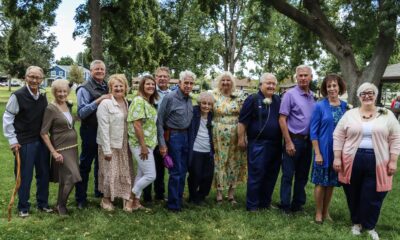

Lehi Heritage Day celebration a “roaring” success
-
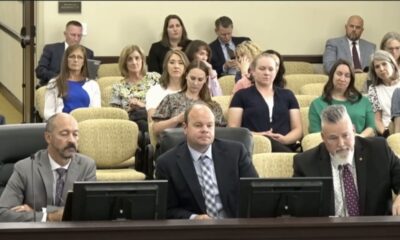

ASD slammed by Utah legislative committee for school closure process; board and superintendent subpoenaed for questioning
-
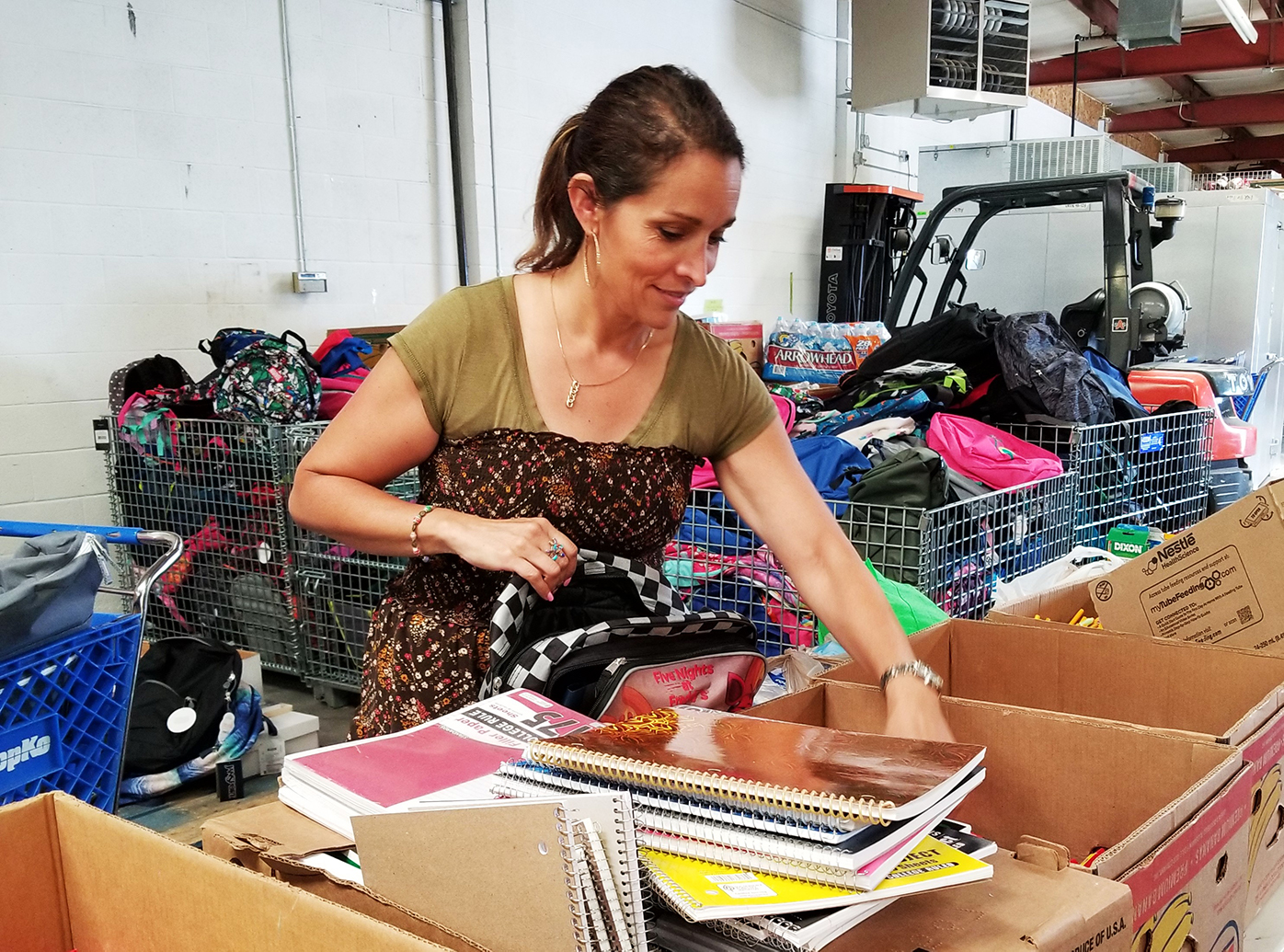

Local food pantry enlists neighbors in battle against hunger
-
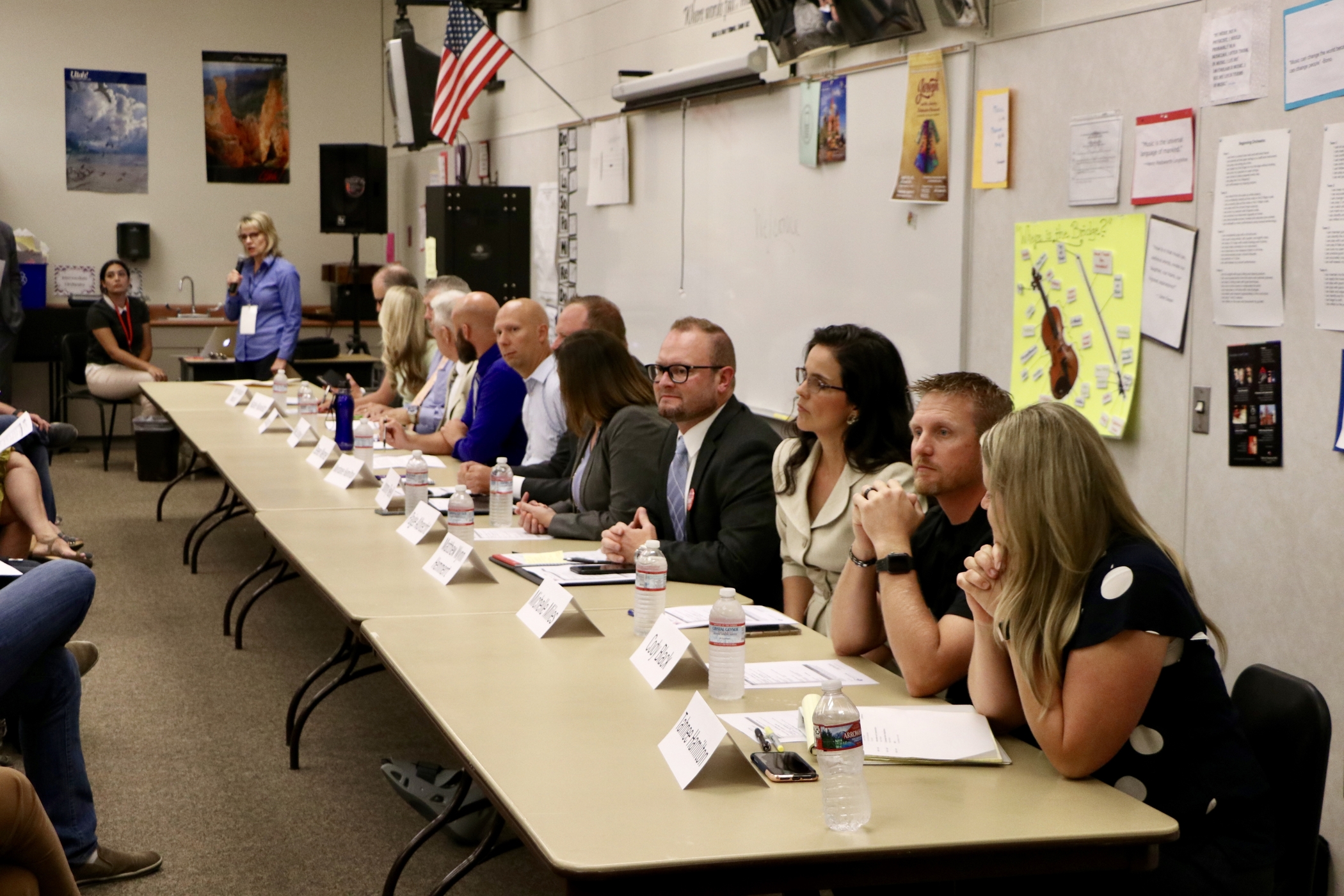

Candidates for Lehi City Council Discuss Positions at Debate
-
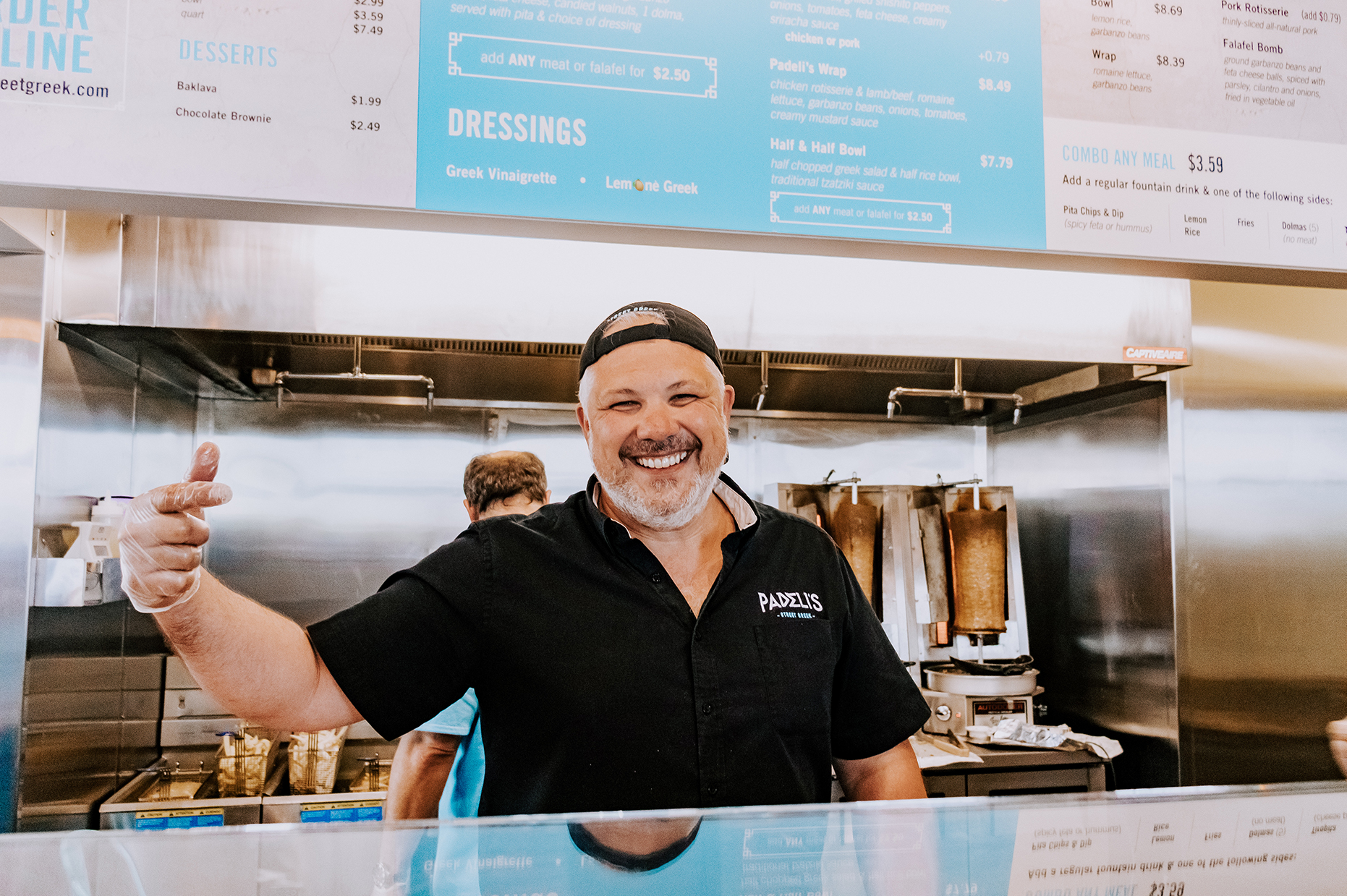

Restaurant review: Padeli’s Street Greek brings sensational Greek flavors to Lehi
-
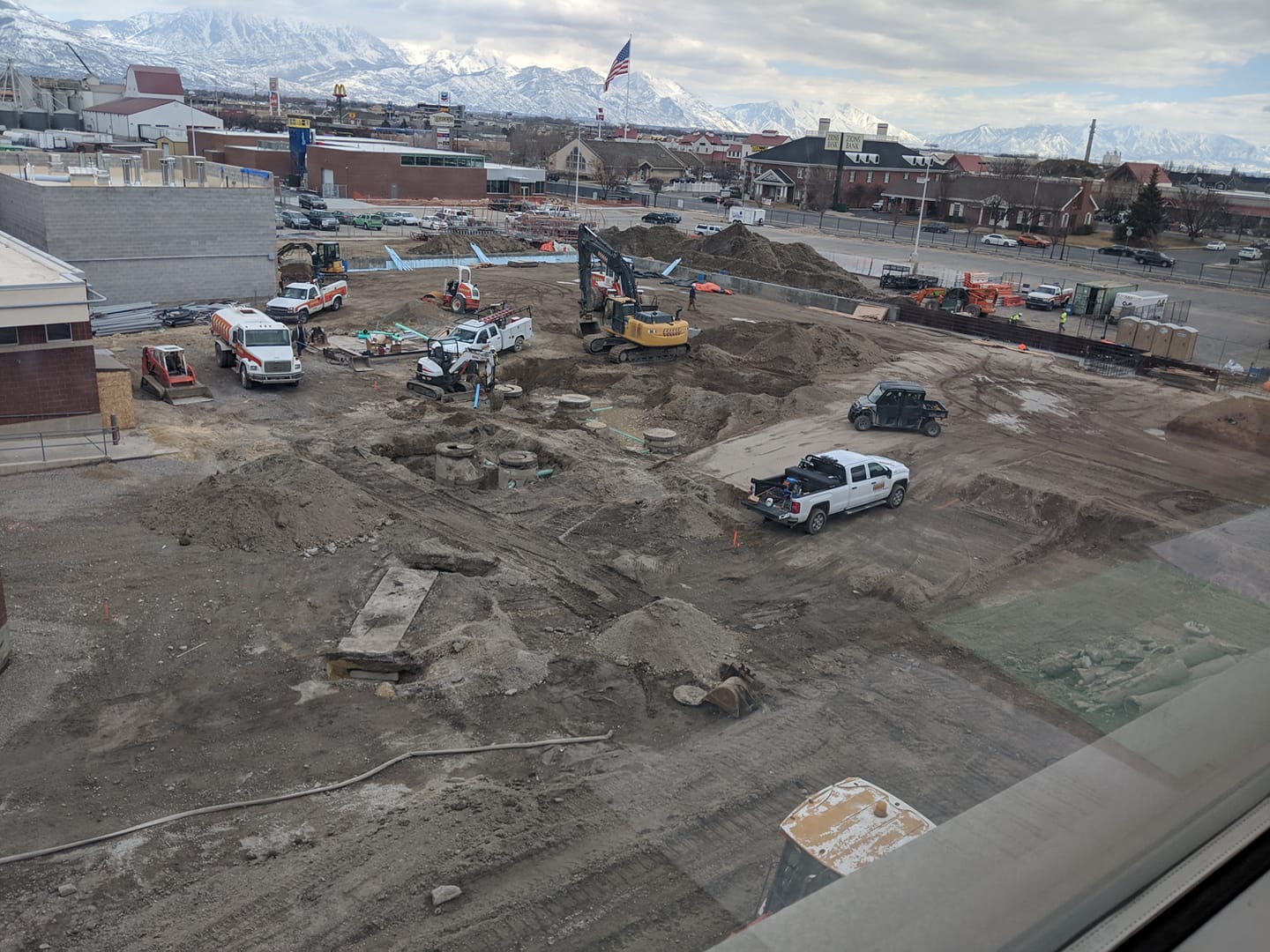

LHS rebuild: What’s for lunch?
-
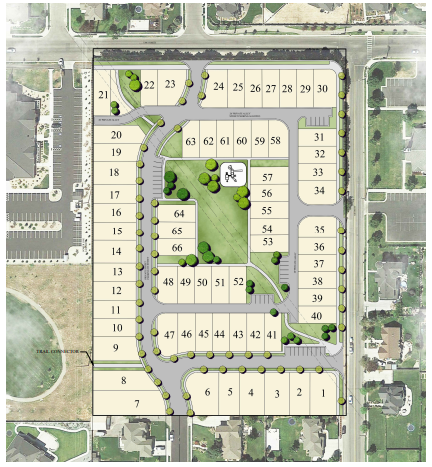

City Council approves revised Dixon Mink Farm, Ivory project
-
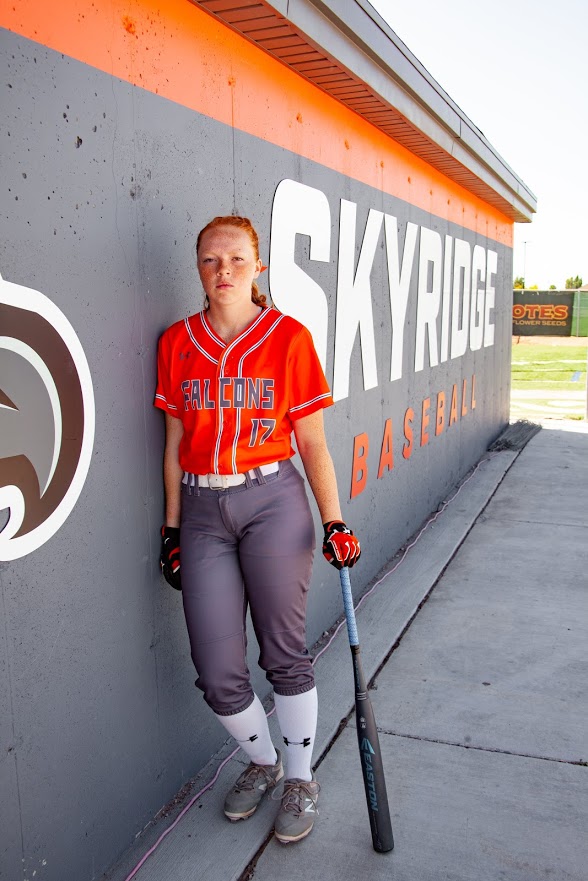

Skyridge Softball wins against Timp and Enterprise, Loses to Springville
-
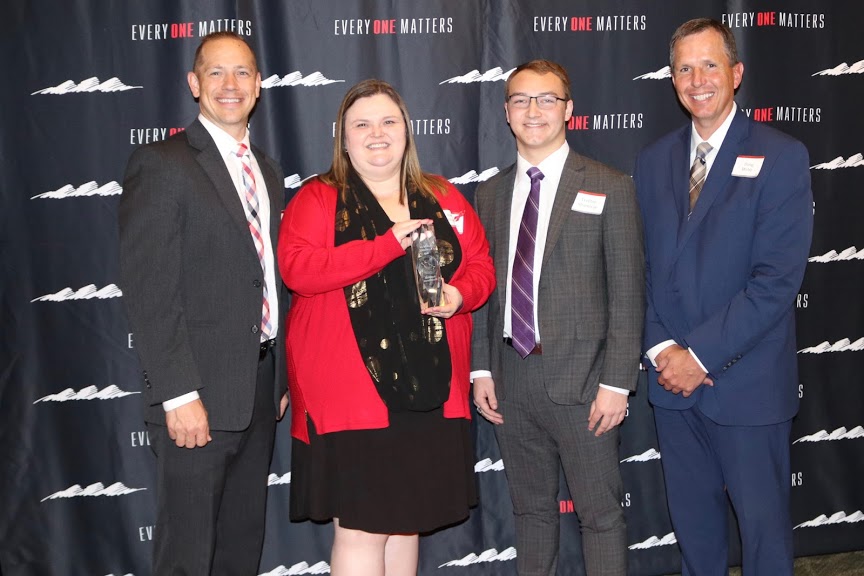

ASD Accent on Excellence awards presented
-


Run for Your Mom 5K Saturday

